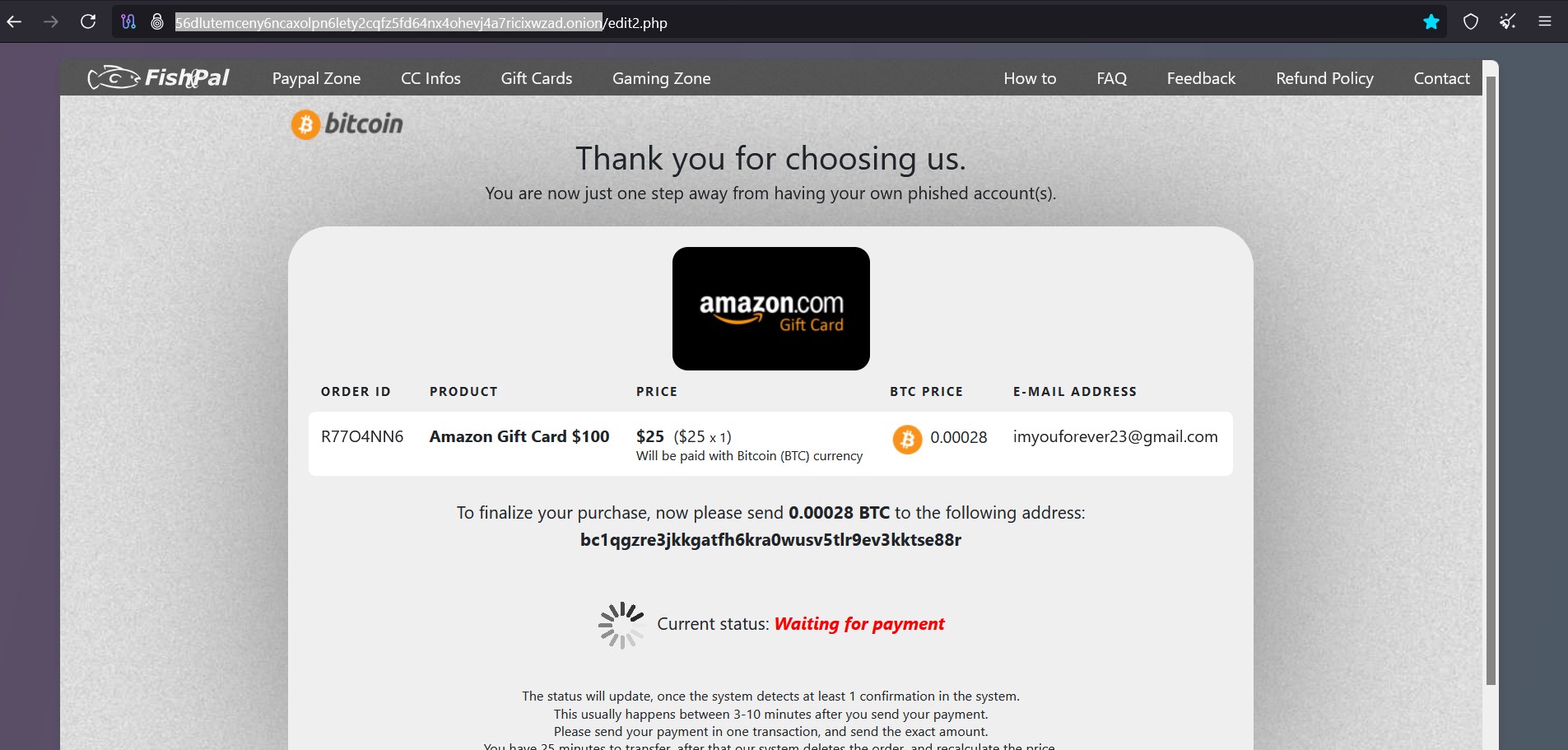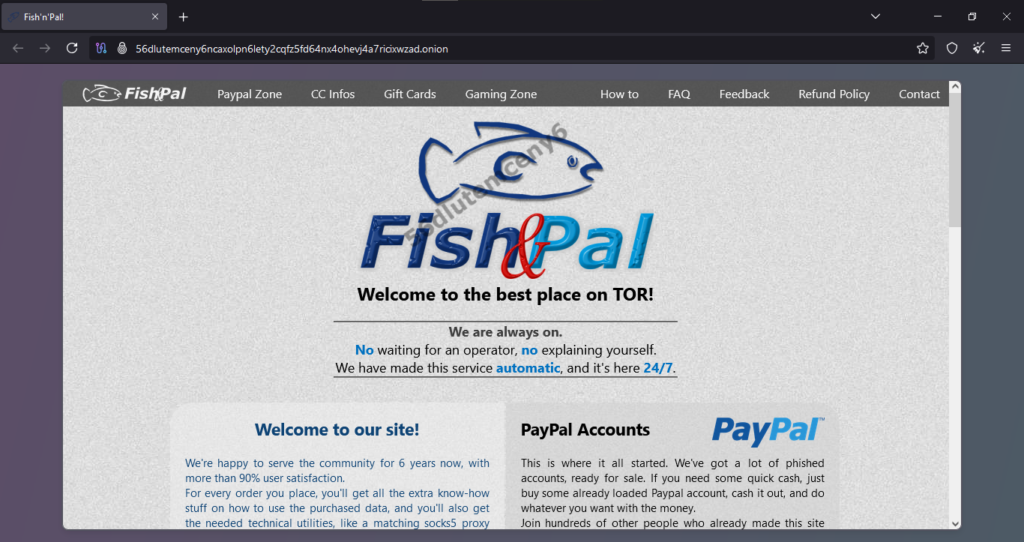Table of Contents
ToggleFISH PAL – TOR Scam Report (67)
Onion Link: http://56dlutemceny6ncaxolpn6lety2cqfz5fd64nx4ohevj4a7ricixwzad.onion
Scam Report Date: 2024/12/10
Client Scam Report Breakdown
Original Report Summary:
The client reported being scammed on the TOR-hosted website “FishPal” after purchasing a $100 Amazon Gift Card for $25 using Bitcoin (BTC). Despite completing the payment and providing proof via a blockchain transaction ID (6874f37b96c41fbb11d7bf2dae363654201ae069755be38a8efe295b69706ebc), the order was never fulfilled, and the status remained “Waiting for Payment.” The client provided supporting documents, including screenshots of the transaction confirmation page and the blockchain payment details, as evidence.
This scam is a clear example of fraudulent behavior on a dark web platform, where anonymity and limited accountability make it easier for vendors to exploit buyers. By reporting this incident and submitting evidence, the client aims to raise awareness and protect others from falling victim to similar schemes.
Photos :

2. Analysis of Scam Mechanism and Defined Terminology
The scam described follows a classic bait-and-switch scheme, where the victim is enticed by an unrealistic offer—in this case, a $100 Amazon Gift Card for $25—only to lose their money without receiving the promised product. This type of scam is common on platforms hosted on The Onion Router (TOR), which provides anonymity for both users and website operators, complicating efforts to track down perpetrators.
Bitcoin (BTC) was the payment method used, a decentralized digital currency known for its pseudonymity and irreversibility. The client’s payment address (bc1qgzre3jkkgatfh6kra0wusv5tlr9ev3kktse88r) and the associated blockchain transaction ID are critical pieces of evidence. The transaction ID allows verification of the payment through blockchain explorers, such as the link provided in the report. However, while this transparency confirms the payment, it does not enable the reversal or recovery of funds due to Bitcoin’s immutable nature.
The “Waiting for Payment” status cited in the report is a deceptive tactic often used by fraudulent vendors. It creates the illusion that the payment was not received, even though blockchain verification proves otherwise. This strategy aims to deflect responsibility and frustrate victims into abandoning their claims. The inclusion of an Order ID (R7704NN6) and additional documentation helps build a stronger case against the scam.
3. Recommendations and Preventative Measures
To mitigate risks associated with scams on TOR-hosted marketplaces like FishPal, both individuals and platforms must take proactive steps. For buyers, vigilance is crucial when encountering deals that seem too good to be true, such as a 75% discount on a gift card. Researching the platform and checking for reviews or complaints about vendors can provide valuable insights. When conducting transactions, always use escrow services where possible. Escrow holds the funds until the product or service is delivered, reducing the likelihood of fraud.
For platforms, implementing stronger vendor verification processes and maintaining transparent dispute resolution mechanisms are essential. Automated fraud detection systems, combined with user-submitted evidence like screenshots and blockchain confirmations, can help identify and act against malicious vendors. Hosting marketplaces on TOR adds a layer of complexity, but platforms claiming legitimacy must prioritize trust-building measures to differentiate themselves from fraudulent sites.
Finally, educating users about the risks of dark web transactions and the limitations of Bitcoin payments can reduce victimization rates. Key lessons include the irreversibility of Bitcoin transactions and the need for due diligence before sending payments. Reporting scams, as the client did in this case, is also critical. Platforms and users alike benefit when scams are documented, investigated, and publicly exposed to prevent further harm.






